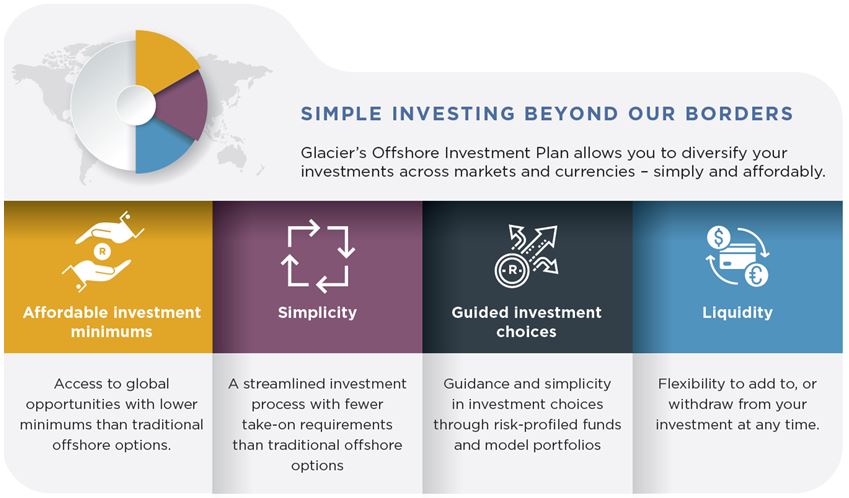A Beginner’s Guide to Investing Off Shore: What You Should Know
Wiki Article
Discovering Exactly How Investing Off Shore Works: A Comprehensive Overview
Spending offshore provides a complex landscape of opportunities and challenges. Recognizing the numerous sorts of overseas accounts is essential for anybody considering this course. The advantages, including boosted personal privacy and asset defense, are significant. However, lawful and tax obligation effects require mindful focus. As financiers look for to maximize their portfolios, the steps to establish a sensible offshore investment strategy become important. What are the crucial elements that one must navigate to succeed in this endeavor?Understanding Offshore Accounts and Their Kinds
What drives individuals and companies to ponder offshore accounts? The attraction of economic personal privacy, asset defense, and potential tax advantages often draws in the focus of those seeking to manage their wide range much more tactically. Offshore accounts, normally developed in foreign territories, come in various types. Individual accounts cater to private needs, providing services like financial savings, financial investment, or retired life planning. Service accounts, on the various other hand, serve companies wanting to promote international deals, boost privacy, or enhance tax obligations. Depend on accounts provide an additional layer of security, allowing individuals to secure their possessions for future recipients. Each sort of overseas account offers unique features, commonly affected by the governing setting of the host nation. Understanding these differences is important for companies and individuals, as the option of account kind can especially influence their economic techniques and compliance with international regulations.Advantages of Offshore Investing
While numerous investors look for possibilities to expand their profiles, offshore investing presents unique advantages that can improve monetary development and protection. One noteworthy benefit is the possibility for property defense. Offshore accounts can secure financial investments from political instability or economic downturns in the capitalist's home country. Additionally, offshore financial investments frequently supply access to worldwide markets, permitting financiers to take advantage of arising economies and industries that might not be offered domestically.Another considerable benefit is tax obligation efficiency. Lots of offshore territories use positive tax regimens, which can lessen tax liabilities and boost overall returns. Offshore investing can enhance personal privacy, as particular jurisdictions impose rigorous confidentiality laws.Lastly, overseas accounts can assist in wide range monitoring techniques by offering a bigger range of investment options, consisting of different assets such as genuine estate and commodities. Collectively, these benefits make overseas investing an enticing selection for those seeking to reinforce their economic profiles.
Lawful and Regulatory Factors to consider
Guiding through the regulative and lawful landscape of offshore investing needs cautious interest and understanding. Investing Off Shore. Capitalists have to browse an intricate internet of legislations that vary markedly from one jurisdiction to another. Conformity with regional laws is important; failing to do so can lead to severe charges, including fines and imprisonment. Furthermore, understanding the lawful frameworks controling international investments is essential for assuring the protection of possessions and keeping operational legitimacy.Key considerations consist of understanding the regulative requirements for establishing overseas entities, such as counts on or companies, and sticking to anti-money laundering (AML) and know-your-customer (KYC) policies. Financiers need to likewise recognize reporting obligations in their home country, as several nations require disclosure of offshore holdings. Engaging with lawyers experienced in overseas financial investment can provide very useful guidance, assisting investors to reduce threats and secure conformity with appropriate laws and guidelines while optimizing their financial investment potential

Tax Obligation Implications of Offshore Investments
Comprehending the regulatory and legal factors to consider of overseas investing normally results in an assessment of the tax ramifications connected with these investments. Offshore financial investments can provide substantial tax benefits, consisting of reduced tax obligation prices and the possibility for tax obligation deferment. Financiers should navigate complex tax policies in their home countries, as many territories require taxpayers to report international income and assets.For U.S. residents, the Foreign Account Tax Obligation Conformity Act (FATCA) mandates the coverage of overseas accounts, while other nations have similar demands. Failure to abide can lead to extreme why not try this out fines. Furthermore, specific offshore funds might undergo special tax treatments, such as Passive Foreign Investment Business (PFIC) policies, complicating investment strategies.Investors need to take into consideration speaking with tax specialists to recognize effects details to their scenarios and assurance compliance with both international and residential tax legislations, inevitably making the most of the advantages of their offshore financial investments while lessening risks.Steps to Get Started With Offshore Investing
Several financiers seeking to diversify their profiles transform to overseas investing as a feasible option. To begin, one must carry out extensive research on possible overseas jurisdictions, thinking about variables such as regulative atmosphere, taxes, and financial investment opportunities. Investing Off Shore. After choosing an ideal place, financiers should develop an offshore account, which generally calls for documentation verifying identity and resource of funds.Next, capitalists frequently involve with an overseas financial investment or a financial consultant company familiar with regional regulations and market characteristics. This collaboration can assist in crafting a tailored investment method that straightens with specific goals and take the chance of tolerance.Once the approach remains in area, capitalists can proceed to select specific possessions or funds for investment, ensuring they review efficiency and takes the chance of on a regular basis. Preserving compliance with both local and home country regulations is necessary for successful overseas investing, calling for continuous persistance and potentially routine consultations with legal experts.
Frequently Asked Concerns
Exactly how Do I Pick the Right Offshore Jurisdiction?
Selecting the right offshore territory entails assessing elements such as governing environment, tax obligation benefits, political stability, and simplicity of operating. Investigating each choice completely guarantees informed choices that align with individual investment objectives and run the risk of tolerance.What Types of Properties Can I Hold Offshore?

Are There Dangers Connected With Offshore Spending?
The dangers related to offshore investing include lawful complexities, regulative adjustments, money variations, and potential political instability. Investors have to carefully evaluate these aspects to minimize dangers and warranty compliance with global legislations and laws.How Can I Gain Access To My Offshore Funds?
To accessibility overseas funds, individuals generally require to contact their economic institution, supply necessary recognition and paperwork, and comply with well-known protocols for fund transfers, guaranteeing conformity with both regional and worldwide guidelines governing offshore investments.
What Prevail Mistaken Beliefs Regarding Offshore Accounts?
Common misunderstandings about offshore accounts include beliefs that they are only for tax evasion, lack of policy, or obtainable to the affluent. In truth, they can be legitimate monetary tools for varied people. In addition, offshore financial investments typically give access to global markets, allowing investors to tap into emerging economies and sectors that may not be available domestically.Another considerable benefit is tax obligation performance. Overseas investing can enhance privacy, as certain territories implement rigorous privacy laws.Lastly, offshore accounts can assist in wide range monitoring strategies by giving a bigger array of investment options, consisting of alternate properties such as actual estate and commodities. Understanding the legal and regulative considerations of offshore investing normally leads to an examination of the tax obligation implications linked with these financial investments. Offshore investments can use substantial tax advantages, consisting of reduced tax rates and the possibility for tax obligation deferment. After selecting an ideal place, financiers must develop an overseas account, which usually needs paperwork showing identity and resource blog here of funds.Next, investors typically engage try these out with an economic expert or an offshore investment firm acquainted with neighborhood regulations and market dynamics.Report this wiki page